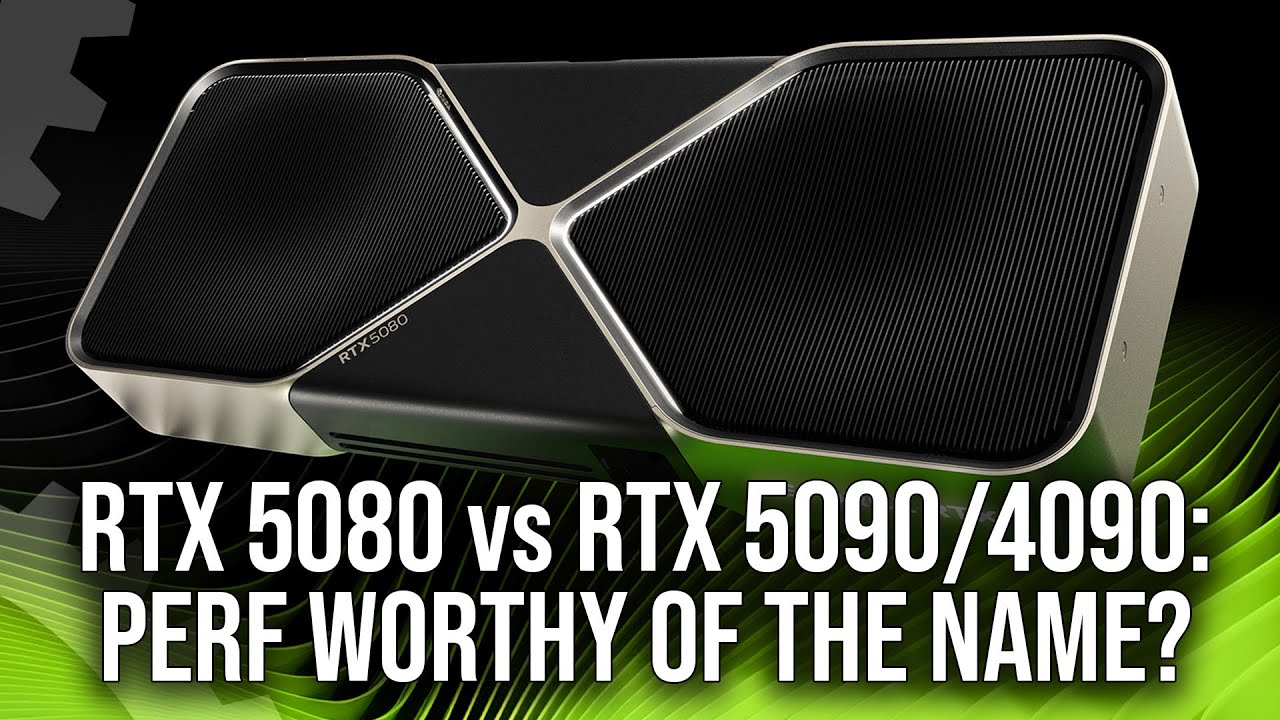The Nvidia GeForce RTX 5080 offers a 14% performance improvement over the RTX 4080 Super and is positioned as a solid option for 4K gaming, but its advancements are less significant compared to previous generational leaps. While it delivers commendable efficiency and features like DLSS 4, the RTX 5080 is seen more as a refined version of its predecessor rather than a groundbreaking upgrade, leading to mixed feelings among potential buyers.
Nvidia GeForce RTX 5080 Review vs RTX 5090/RTX 4090/RTX 4080 Super - Performance Worthy Of The Name?
The Nvidia GeForce RTX 5080 has been reviewed against its predecessors and competitors, notably the RTX 5090, RTX 4090, and RTX 4080 Super. Priced at $1,000, the RTX 5080 offers a performance improvement of about 14% over the RTX 4080 Super, making it a solid upgrade for gamers, especially those interested in 4K gaming and advanced features like DLSS 4 multiframe generation. However, the review notes a sense of disappointment as the performance jump is not as significant as seen in previous generational leaps, like the GTX 980 over the 780 Ti or the RTX 3080 over the 2080 Ti.
When comparing the RTX 5080 to the RTX 5090, the performance disparity is notable, with the 5080 achieving around 77% of the 5090’s performance at 4K resolution. The efficiency of the RTX 5080 is commendable, using about 62% of the power compared to the 5090 while delivering a similar performance output. The review highlights that the RTX 5080 is more akin to a refined version of the existing RTX 4080 Super than a groundbreaking new product, which may lead to mixed feelings among potential buyers.
The technical specifications of the RTX 5080 showcase improvements in power consumption and memory bandwidth, with a shift to GDDR7 providing a 30% increase in bandwidth over the previous generation. The card operates at 360 watts, slightly higher than the RTX 4080 Super, but maintains a similar core count and die size. Benchmarks across various games demonstrate that while the RTX 5080 performs well, it does not drastically outpace its predecessor, the RTX 4080 Super, which could deter some users from upgrading.
The review also delves into performance benchmarks in various titles, revealing that while the RTX 5080 offers improvements over the RTX 4080 Super, it falls short against the RTX 5090 and 4090. Games like “Alan Wake 2” and “Cyberpunk 2077” highlight the card’s capabilities, but the performance gains are often modest compared to what users might expect based on past generational shifts. The RTX 5080 is found to be approximately 15% faster than the RTX 4080 Super in some scenarios, but the efficiency metrics are more closely aligned with the previous generation, indicating a lack of transformative change.
Ultimately, the RTX 5080 is positioned as the best value GPU in its class, offering a competitive performance-to-price ratio, especially for those looking to game at 4K. However, the review suggests that the gap between the RTX 80 and 90 series cards is more pronounced than ever, with generational improvements being less revolutionary. The new features, particularly in DLSS technology, may prove beneficial over time, but the overall sentiment is that the RTX 5080, while a capable card, does not represent a significant leap forward in performance.
